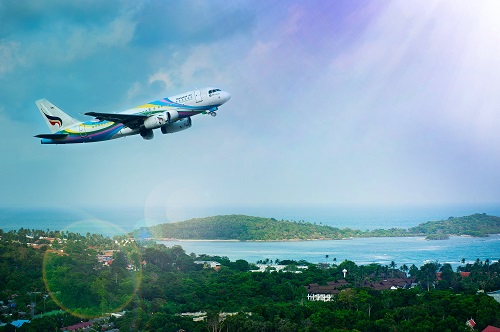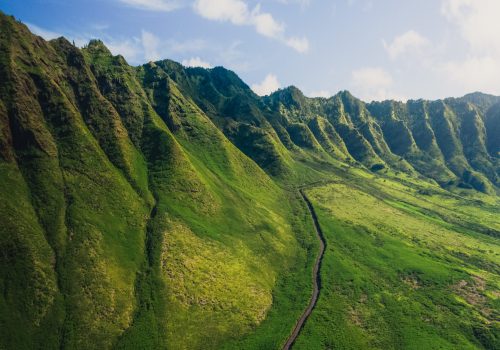Abandoning tourism as we know it

Responsible tourism and the environmental impact of tourism are hot topics that come along with the profound changes in the travel industry of our time. Environmentalists and eco-friendly influencers and journalists have become loudly outspoken as never before. Air and water pollution are among the most concerning topics of the modern environmental movement since 1961.
The UN efforts topped up with the Paris Climate agreement in 2016. Followed by the rise of global environmental campaigns starting at root levels; such as the one led by the Swedish student environmentalist, Greta Thunberg, in 2018. Lastly, the Corona (Covid-19) pandemic has made an urgent call to action in favor of responsible tourism.
Inspired by Marie-Pierre Genecand’s post published in Le Temps in June 2020, this post is about the untold history and evolution of tourism as well as its impact on the world. An invitation to rethinking and abandoning tourism as we know it.
A brief history of tourism
Tourism has been around since the end of the 17’th century. It Started by young English aristocrats who toured Europe on a trip known as ‘Grand Tour’ typically at the age of 21. They took a trek from Britain through France and Italy in search of art, culture, and historical legacy. Inspired to discover the western civilization roots and perfect their foreign language skills. They collected pieces of ornaments and paintings on the way to decorate their newly built country mansions. With the passage of time, women and the upper-class have also started to make the Grand Tour. Switzerland, Germany, were included on the tour later on.
With the advent of steam-powered transportation at the end of the 19th century, the Grand Tour custom continued but with cheaper, easier and safer forms. With granting employees the right for paid vacation time (Front Populaire in France in the 1930s), tourism ceased to be exclusive to aristocrats. Working-class began taking holidays for the first time in history.
Industry boom to mass tourism that broke the world
In July 1841 Britain’s Thomas Cook has created the first organized package holiday. Thus, it is no coincidence that the British have also launched the first Charter flights heading to Spain. From the year 1960 onward, tourism has evolved in the UK into a new industry. The British government dedicated immense resources to build full infrastructure around piers, boardwalks, fairgrounds, casinos, and boarding houses. Thousand of miles of seashores have witnessed a noticeable decay. Being transformed into resorts to accommodate the influx of tourists.
With the deregulation of air traffic in the 1980s and the proliferation of low-cost carriers, tourism boomed.
Increased levels of income and the availability of cheaper means of transport allowed people to take even shorter vacations. Destinations have become more of a uniform with tourists visiting the same cities, towns, and regions.
The complex relationship between tourism and the environment

Because it is not done with care and consideration, tourism has currently an adverse impact on the environment. Short drinking trips to Prague for the weekend, costing EUR 30 with high emission planes have an extremely expensive toll on the environment. The continuous expansion of tourism infrastructure contributes to deforestation in millions of acres of green areas. The cultural and social fabrics of tourist destinations are noticeably degrading. Crowding out locals from historic city centers and towns (Venice for example). Ironically, tourism has been destroying the very thing that it relies on. Whether culture, heritage, and nature (think gorilla tricking, safari tours..etc).
The impact of Responsible tourism on the economy
You may now wonder, but what about the people working in the tourism sector? how responsible tourism can impact them?
We do not neglect the fact that tourism is an industry that benefits the economy. For instance, there are countries that rely on tourism as the main source of income. Families live from offering services to tourists. That’s to say, tourism can also have a positive impact, only if done responsibly.
Indeed it is time to think about what can they alternatively do. With the acceleration of technological development, all professions have been impacted. New jobs have been created. Time to remember the shifting nature of the demand and offer, of economies. To the adaptation of humanity to the availability of means and resources.
Time to grow responsible tourism
After the Corona pandemic, tourism is calling for a rebirth. Responsible tourism with trips without an itinerary. With sustainable decisions that take into consideration seriously the preservation of the physical and biological diversity of the world.
Humanity misses the point by seeking happiness outside of where we are. We do not need to seek it at the other end of the world. As Mme. Genecand quotes Nicolas Bouvier ‘trips start at the tip of our shoes’.
It’s time to establish new norms and standards. To think holistically of the actions we take. Time to apply responsible tourism as a new habit.
The times of the Corona confinement proved to us that it is possible to go back to the essentials in life. To explore the areas where we live. To make that short trip on foot to that nearby spot and feel like we have been somewhere that day.
If we cannot find happiness with a leisurely walk in nature, with a talk to a friend, with a patting of a dog then we will not find it anywhere. We all need the feeling of security, health, hearty relations in our lives. Without having this from within, holiday destinations are a mirage. A promise delivered in a picture of a miraculous beach that is never fulfilled.
I am Ahmet Gokay,
Finance and English professor with many years of experience in finance and economics in Europe, the US, and the Middle East. A believer in the power of children education and changing the world by passing the knowledge and experience to younger generations; The leaders of tomorrow. Visit my home page here.
